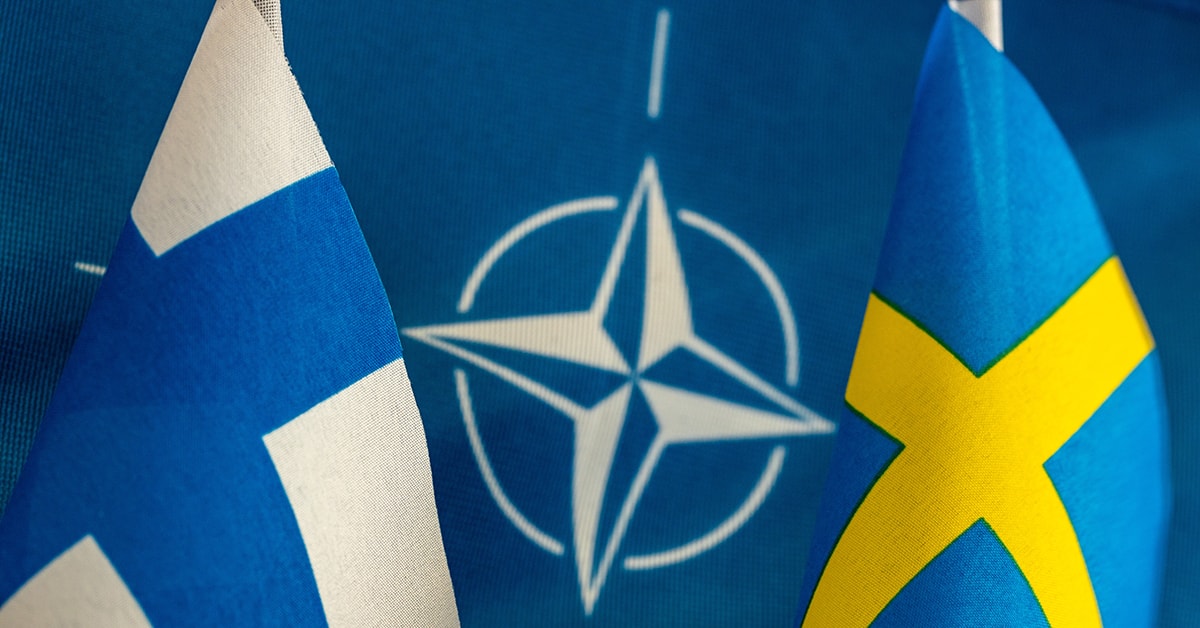The altered relationship with Moscow is certain to hurt Finland the hardest.

The historic decision by Sweden and Finland to seek membership in the North Atlantic Treaty Organization (NATO) will have an immediate negative impact on their trade and investments in Russia. The two militarily unaligned Nordic countries are responding to the radically changed security landscape and contemplating long-term benefits.
Ongoing threats by Moscow to sanction Finnish and Swedish companies with operations in Russia are taking place against the backdrop of a mass exit of Nordic capital. Membership in NATO is expected to produce new business opportunities for leading Nordic defense groups, namely Saab, Norma Precision, CybAero, Patria Group, Sisu, SAKO and Nammo. Despite offerings that include combat aircraft, stealth submarines, armored vehicles and advanced artillery systems, these companies have historically found it challenging to compete with NATO-based rivals for lucrative contracts.
The altered relationship with Moscow is certain to hurt Finland the hardest. With a border extending 830 miles (1,336 km), Finland’s long-standing economic ties to Russia are the deepest of any Nordic state. Nordea singled out Finland for special mention in its Nordea Economic Outlook released on May 11, downgrading Finnish GDP projections for 2022 from 3% to 2%. “The Nordic economies … all benefit from having had a strong starting point before the war, when the risk of overheating was the common Nordic economic narrative,” Nordea says in a report. But “Finland will be affected the most, Norway the least.”
All Nordic countries will face an extended period of adjustment, with potential long-term impacts. When Russia ceased gas exports to Finland, for example, state energy group Gasum reacted by leasing a floating LNG terminal. Finance Minister Annika Saarikko said the Kremlin-endorsed action presented an opportunity: “The LNG terminal will make it possible for us to break free from Russian gas.”
Fortum, Finland’s largest state-owned energy company, bolstered a plan to execute a “controlled exit” from Russia in May, a process that will involve the sale of production plants and the discontinuation of new investments and financing of subsidiaries. Among the Fortum-owned assets for sale are power plants operated by its subsidiary Unipro. A full exit from Russia will take time, said Markus Rauramo, Fortum’s CEO.



